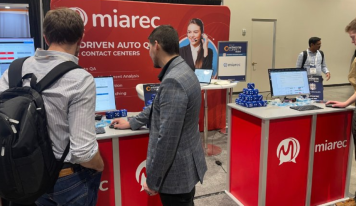As mobility becomes a larger part of boosting productivity and satisfying the desires of companies to keep workers connected, NEC has partnered with FMC company Varaha to add value to its solutions. NEC has always been a solid tech company but they have decreasing mindshare in the enterprise/SMB market according to VARs and corporate buyers I encounter. They certainly aren’t alone in this regard but to counter a lack of mindshare they have done a very good job of making aggressive acquisitions and relationships over the years. Sphere and Active Voice /AVST come immediately to mind.
With the Varaha deal, all the benefits of the company’s uMobility FMC solutions come to users of the NEC UNIVERGE SV8000 Series Communications Server allowing a single phone number over cellular and WiFi, 4-digit dialing, etc. I had a chance to speak with Ed Cox – VP, Marketing & Carrier Sales at Varaha last week – just before the merger and he explained how they have changed their product by taking the echo cancellation and silence suppression from the client to the server. Obviously this is a good move as it conserves battery life and relies less on localized resources which reside on a client which has to often do lots of other things while dealing with voice calls such as web browsing, displaying GPS coordinates, etc.
Ed Cox explains how Varaha’s solutions work with devices and carriers to enable FMC
Ed explained how his developers are in-love (my words not his) with Android because they write to it once and it runs on many of the devices which support the software – even different OS versions. He further explained that the openness of the Google-sourced platform allow them to make call-handoff available now – something they are still working n bringing to the world of Blackberry. It took them only 6-weeks in fact to get working software from the time the developers got a hold of the Android SDK. He also mentioned the company is waiting for Windows Phone 7 to be released.
Oh, and the iPad is on the list so if this news was holding you back from purchasing, rest assured, now is a great time to head to the Apple store and pick one up. Exciting things we can expect soon from the company consist of a campus alert product, a partnership with MetaSwitch and based on the trials the company is running we shouldn’t be surprised to hear about CLEC deals in Canada soon.
Cox acknowledges the FMC market has been slower to take off than expected but says, “There is no such thing as hockey stick in telecom adoption.” But he makes a compelling argument as to why customers should buy from his company citing investment protection in equipment you own already, being able to extend the features of the cell phone and PBX to the other device/network, making the user experience better and the ability to add rules to the cell phone which sit on top of the PBX.
Ed is optimistic about the market for other reasons as well. For example arbitrage in the world of landlines was responsible for a slew of VoIP equipment to be purchased. Interestingly, long-distance cellular calls are still quite expensive and FMC solutions can pay for themselves in as little as five weeks if corporate callers make many international calls. This is the case with a Varaha customer where employees bounce back and forth between Toronto and Detroit.
I asked about the softer side of the ROI equation – the productivity benefits of FMC which are harder to quantify. Ed mentioned that he would love to do some time-management studies but customers understand intuitively that users spend less time playing phone-tag and checking voicemail when FMC is implemented. In addition, the latest 4.0 version of the company’s software has better stats related to users and networks allowing companies to monitor how calls hand off, which networks are used and what savings has been accumulated.
What you may not realize is the company’s uMobility controller works hard in the background to make decisions about network handoffs. Once a mobile phone encounters and locks onto a WiFi network, it takes an additional 45-60 seconds for the software to test its integrity and quality before deciding it is something worth sending calls over.
FMC is a highly competitive space because it is being targeted by carriers, independent vendors and PBX manufacturers. Not all companies will make it through. Cox explains however his company is a whisper away from being cash flow positive but no amount of prompting was able to get him to describe his definition of whisper. In addition, he remains confident about the FMC space because he explains that his company has been around for seven years, when PDAs needed special cards to access WiFi and when they did jump on a wireless network they lasted 20 minutes. Now as he explains, battery life is much greater and WiFi-enabled devices come out of gumball machines.
The question now is how big a market FMC can be and whether FMC will just become a seamless no-brainer addition to corporate UC initiatives. And if they do, Varaha and the industry as a whole should have lots of new prospects to chew on.





